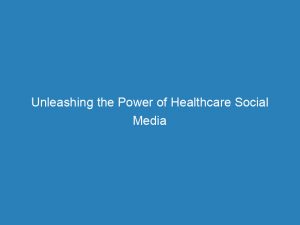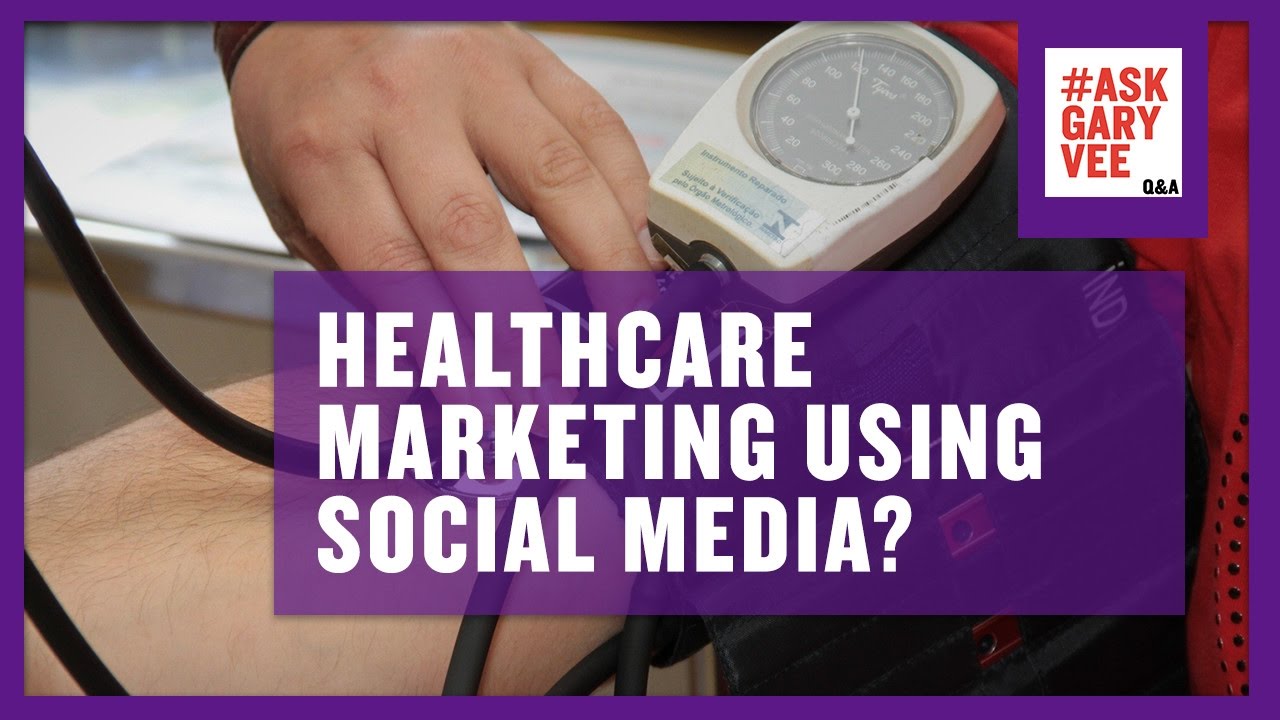- healthcare social media marketing
- Healthcare Social Media Marketing: The Intertwining Of Healthcare And Social Media
- Large Following And Engagement: Healthcare Accounts On Social Media
- The Duties Of Healthcare Providers On Social Media: Informing The Public And Adhering To Regulations
- The Importance Of Social Media During Healthcare Crises Like Covid-19
- Educating The Public With Timely And Factual Information
- Alleviating Patients’ Anxiety And Concerns Through Social Media
- Understanding The Unique Role And Responsibilities Of Healthcare Social Media Marketing
- Publishing Educational, Bite-Sized, And Inspirational Content
In a world driven by hashtags and likes, the healthcare industry cannot afford to remain on the sidelines. With the power of social media at their fingertips, healthcare providers have a golden opportunity to educate, engage, and empower the public like never before.
Breaking the barriers of traditional communication, platforms such as Facebook, Twitter, and Instagram open up endless possibilities for sharing vital information, debunking myths, and fostering meaningful connections. From captivating infographics to behind-the-scenes glimpses into the lives of healthcare professionals, socialmedia offers a dynamic landscape for healthcare organizations to reach their audience and make a lasting impact.
Get ready to explore the untapped potential of healthcare social media marketing!
| Item | Details |
|---|---|
| Topic | Unleashing the Power of Healthcare Social Media Marketing: Strategies for Success |
| Category | Ads |
| Key takeaway | In a world driven by hashtags and likes, the healthcare industry cannot afford to remain on the sidelines. |
| Last updated | December 28, 2025 |
social-media-marketing">healthcare social mediamarketing
Healthcare social media marketing is a crucial strategy for healthcare providers seeking to engage with a wide audience and fulfill their responsibilities on social media platforms. With the increasing integration of healthcare and social media, providers have the opportunity to inform the public, alleviate patients’ concerns, and provide timely and factual information, particularly during healthcare crises like COVID-19.
The focus in healthcare social media marketing should primarily be on publishing educational, bite-sized, and inspirational content that resonates with the target audience. Infographics are popular for conveying health information effectively, and the use of health-related hashtags can extend reach.
Behind-the-scenes content can humanize the practice, while user-generated content can highlight the positive impact of healthcare services. Additionally, utilizing social listening tools is crucial for tracking mentions, messages, and hashtag usage to effectively engage with the audience and stay informed about discussions surrounding healthcare topics.
Key Points:
- Healthcare social media marketing is important for healthcare providers to reach and engage with a wide audience on social media platforms.
- Providers can use social media to inform the public, address concerns, and provide accurate information during healthcare crises.
- The focus should be on publishing educational, bite-sized, and inspirational content that appeals to the target audience.
- Infographics and health-related hashtags are effective tools for conveying health information and extending reach.
- Behind-the-scenes content humanizes the practice, while user-generated content showcases the positive impact of healthcare services.
- Using social listening tools helps providers track mentions, messages, and hashtag usage to effectively engage with the audience and stay informed about healthcare discussions.
Sources
https://sproutsocial.com/insights/social-media-in-healthcare/
https://blog.hootsuite.com/social-media-health-care/
https://www.forbes.com/sites/forbesbusinesscouncil/2022/01/24/healthcare-social-media-trends-to-watch-in-2022/
https://www.webfx.com/industries/health/hospitals-healthcare/social-media/
Check this out:
💡 Pro Tips:
1. Incorporate storytelling into your healthcare social media marketing strategy. Share patient stories, success stories, and provider experiences to connect with your audience on a deeper level and humanize your practice.
2. Utilize influencers in the healthcare industry to expand your reach and credibility. Collaborate with healthcare professionals, patient advocates, and other influential individuals to promote your content and increase engagement.
3. Stay up-to-date with current healthcare trends and topics. Regularly research and share accurate information about emerging healthcare issues, treatments, and technologies to establish yourself as a trusted source of information.
4. Encourage user-generated content by organizing contests, asking for patient testimonials, and creating opportunities for your audience to contribute to your social media platforms. This not only boosts engagement but also showcases the positive impact of your healthcare services.
5. Monitor and respond to comments and messages promptly. Actively engage with your audience by answering their questions, addressing concerns, and providing support. This level of responsiveness and interaction will foster trust and loyalty among your followers.
Healthcare Social Media Marketing: The Intertwining Of Healthcare And Social Media
The world of healthcare and social media have become deeply intertwined in recent years, with healthcare providers using social media platforms to connect with their patients and the general public. Social media has given healthcare providers an unprecedented opportunity to reach a vast audience and engage with them on a personal level.
This has led to the rise of healthcare accounts on platforms such as Facebook, Twitter, Instagram, and LinkedIn, where they have amassed large followings and gained significant engagement.
Large Following And Engagement: Healthcare Accounts On Social Media
Healthcare accounts on social media have garnered a substantial following, with millions of users actively engaging with their content. These accounts have become a valuable source of information, support, and inspiration for a wide range of individuals, from patients seeking medical advice to healthcare professionals looking to stay updated on the latest industry trends.
The high engagement rates on healthcare accounts prove that social media is an effective tool for disseminating healthcare-related information and fostering meaningful connections between providers and their audience.
The Duties Of Healthcare Providers On Social Media: Informing The Public And Adhering To Regulations
Healthcare providers have specific responsibilities and duties when it comes to their presence on social media. Firstly, they must ensure that the information they share is accurate, reliable, and in adherence to relevant regulations and guidelines.
This is crucial to maintain the trust of their audience and avoid spreading misinformation or false claims. Additionally, healthcare providers have an obligation to inform the public about various healthcare topics, advancements, and public health concerns through their social media presence.
The Importance Of Social Media During Healthcare Crises Like Covid-19
In times of healthcare crises, such as the ongoing COVID-19 pandemic, social media plays a vital role in disseminating timely and factual information to the public. Healthcare providers have utilized platforms like Twitter and Facebook to share updates on the virus, preventive measures, and vaccination information.
During such crises, social media becomes an essential tool for educating the public and helping them stay safe by providing accurate information from trusted sources.
Educating The Public With Timely And Factual Information
Healthcare providers should use their social media presence as a platform to educate the public with timely and factual information. By sharing reliable information about diseases, treatment options, and preventive measures, providers can help dispel myths and misconceptions, ultimately improving public health outcomes.
It is crucial for healthcare professionals to stay up to date with the latest research and guidelines, ensuring that the information they share is accurate and evidence-based.
Alleviating Patients’ Anxiety And Concerns Through Social Media
One of the significant benefits of healthcare social media marketing is its ability to alleviate patients’ anxiety and concerns. Social media platforms provide a space for patients to connect with healthcare professionals, ask questions, and seek support.
By engaging with patients in a compassionate and empathetic manner, healthcare providers can address their concerns, offer reassurance, and provide accurate medical advice. This interaction can provide patients with a sense of comfort and help them navigate their healthcare journey with confidence.
Understanding The Unique Role And Responsibilities Of Healthcare Social Media Marketing
Healthcare social media marketing requires a comprehensive understanding of the unique role and responsibilities of healthcare providers. It is crucial to strike a balance between promoting services and providing valuable information without appearing overly promotional.
Healthcare providers must establish themselves as trusted sources of information while maintaining professionalism and adhering to ethical guidelines. By approaching social media marketing with a patient-centered focus, healthcare providers can build trust, foster engagement, and ultimately improve patient outcomes.
Publishing Educational, Bite-Sized, And Inspirational Content
When it comes to healthcare social media marketing, the focus should primarily be on publishing educational, bite-sized, and inspirational content. By breaking down complex medical topics into easily digestible information, healthcare providers can help their audience better understand their health and make informed decisions.
Additionally, incorporating inspirational stories and success stories can provide motivation and support to individuals facing health challenges. Infographics, which combine images and concise text, have gained popularity for their ability to educate and engage patients in visual formats.
In conclusion, healthcare and social media have become inseparable entities, with healthcare providers using social media platforms to connect with their patients and the general public effectively. Healthcare social media marketing involves understanding the unique role and responsibilities of healthcare providers and engaging with patients in a compassionate and informative manner.
By publishing educational, bite-sized, and inspirational content, healthcare providers can fulfill their duties of informing the public, alleviating patient concerns, and ultimately improving public health outcomes. Through effective social media presence, healthcare providers can harness the power of these platforms to create a positive impact on the healthcare landscape.








